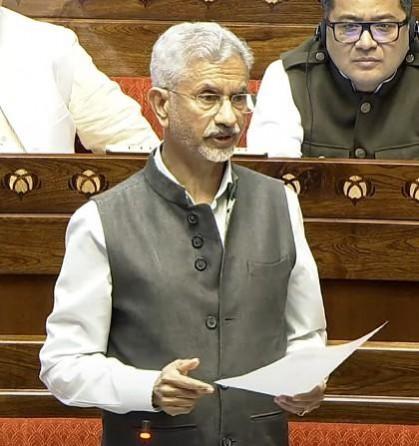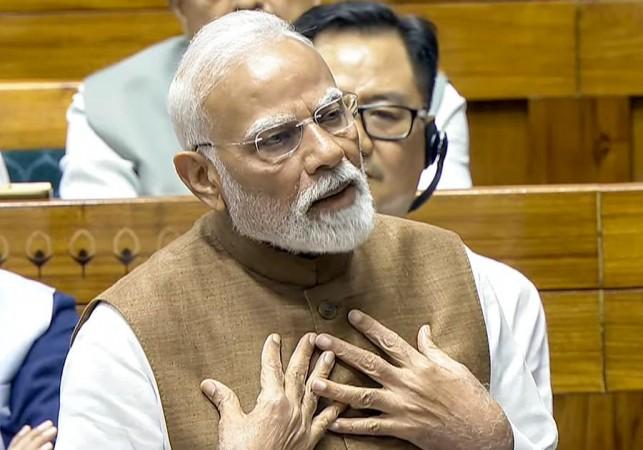
India's External Affairs Minister S. Jaishankar announced in the Rajya Sabha that the Modi government has suspended the Indus Water Treaty (IWT) with Pakistan. This decision aims to address what Jaishankar described as historical errors made by former Prime Minister Jawaharlal Nehru.
The treaty, signed in 1960, was initially intended to distribute the waters of the Indus River and its tributaries between India and Pakistan. However, Jaishankar criticized the treaty, stating, "The Indus Water Treaty in many ways is a very unique agreement. I cannot think of any agreement in the world where a country has allowed its major rivers to flow to the next country without having rights on that river."
The suspension of the treaty is part of a broader strategy by the Indian government to pressure Pakistan to cease its support for cross-border terrorism. Jaishankar emphasized, "Blood and water will not flow together," underscoring the government's firm stance that the treaty will remain suspended until Pakistan irrevocably abandons its support for terrorist activities. This decision follows the Pahalgam terror attack on April 22, which claimed the lives of 26 individuals and was described by Jaishankar as "shocking" due to the brutal manner in which the victims were killed.
In response to the attack, the Indian government took several measures, including the cancellation of Pakistani visas under the South Asian Association for Regional Cooperation (SAARC), a reduction in the strength of diplomatic missions, and the expulsion of military advisors. These actions were part of a broader strategy to hold Pakistan accountable for its actions and to send a clear message of India's resolve and determination.

The Indus Water Treaty, brokered by the World Bank, was signed after nine years of negotiations. It allowed India to utilize the waters of the eastern rivers—Ravi, Beas, and Sutlej—while Pakistan received the waters of the western rivers—Indus, Jhelum, and Chenab. This arrangement was intended to ensure equitable distribution and prevent conflicts over water resources. However, the geopolitical landscape has changed significantly since the treaty's inception, with the rise of terrorism and ongoing conflict in Kashmir straining relations between India and Pakistan.
Jaishankar's remarks in the Rajya Sabha included a critique of Nehru's policies, which he claimed prioritized the interests of Pakistan over those of Indian farmers in Kashmir, Punjab, Rajasthan, and Himachal Pradesh. He quoted Nehru's admission that the treaty was not a purchase of peace but rather an act of appeasement. "What we purchased was not peace, but appeasement," Jaishankar asserted, highlighting the Modi government's efforts to correct these historical errors.
The decision to suspend the Indus Water Treaty has significant implications for both India and Pakistan. The treaty, which has been in place for over six decades, has been a cornerstone of water-sharing between the two countries. Its suspension raises questions about the future of water management in the region and the potential for increased tensions between the two nuclear-armed neighbors.
Pakistan has expressed concern over India's decision, with Pakistani Foreign Minister Ishaq Dar stating that the treaty cannot be unilaterally suspended and that any changes would require mutual agreement. Islamabad is reportedly exploring legal options to challenge India's decision under international law. The international community has taken note of these developments, with some countries expressing concern over the potential for increased tensions in the region.
The United States, in particular, has been closely monitoring the situation, with President Donald Trump previously claiming that trade negotiations played a role in the ceasefire between India and Pakistan. Jaishankar, however, categorically denied any third-party intervention in the ceasefire, asserting that it was a result of India's own strategic decisions. As the situation unfolds, the Modi government's actions will continue to be scrutinized both domestically and internationally.
The suspension of the Indus Water Treaty is not without precedent. In the past, India has used water as a tool of diplomacy, leveraging its control over the rivers to influence Pakistan's behavior. However, this is the first time the treaty has been formally held in abeyance, signaling a more assertive approach by the Indian government. The decision reflects a broader shift in India's foreign policy, which seeks to prioritize national security and hold Pakistan accountable for its actions.
The historical context of the Indus Water Treaty is crucial to understanding the current situation. The treaty was signed after nine years of negotiations, during which both countries sought to address their water-sharing needs. It allowed India to utilize the waters of the eastern rivers—Ravi, Beas, and Sutlej—while Pakistan received the waters of the western rivers—Indus, Jhelum, and Chenab. This arrangement was intended to ensure equitable distribution and prevent conflicts over water resources.
The geopolitical landscape has changed significantly since the treaty's inception. The rise of terrorism and the ongoing conflict in Kashmir have strained relations between India and Pakistan, leading to calls for a reevaluation of the treaty. The Modi government's decision to suspend the treaty reflects a broader shift in India's foreign policy, which seeks to prioritize national security and hold Pakistan accountable for its actions.
Related














